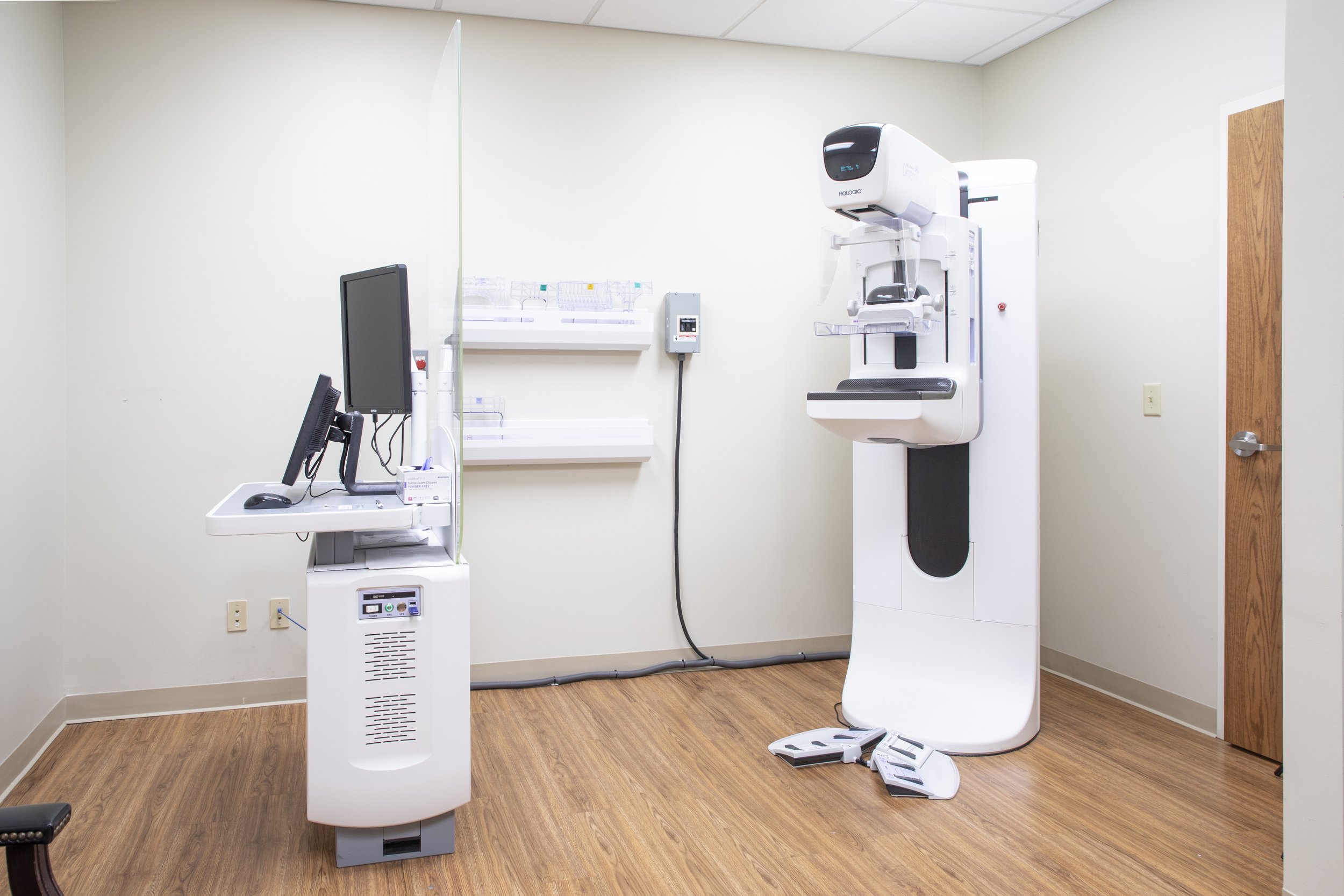
Mammography
Mammograms are a critical tool in detecting early signs of breast cancer in women.
Able to catch tumors too small to be felt during a clinical breast exam, they are recommended annually for women aged 40 and over.
Depending on your family history and risk factors, your provider may ask you to have a mammogram performed earlier.
Simply put, a mammogram is an x-ray picture of breast tissue. Operated by a technologist, a mammogram machine will take images using two plates that spread breast tissue apart to allow for a clearer picture and lower radiation.
Once your mammogram results are received, your healthcare provider will follow up with you. Even if your first mammogram is normal, you must continue getting it. Having multiple screenings helps your provider compare if anything changes with time. If your mammogram is abnormal, that does not mean there is cancer. You will need additional attention to diagnose the abnormality.
There’s no doubt that annual mammograms save lives. By detecting cancer early, this routine exam can hugely improve a patient’s prognosis and potentially lessen the need for extensive treatment. Getting your annual mammogram—and making sure your family and friends do, too—is one of the most straightforward steps to staying healthy long-term.
Meet our mammogram technologist!
Emily Little has been Oxford Clinic for Women’s mammogram technologist since 2024. She cares deeply about helping patients feel comfortable and supported during their mammogram experience, and she takes pride in providing imaging to support early detection and women’s health.
FAQs
+ How can I prepare for my mammogram?
On the day of your mammogram, please do not apply talcum powder, deodorant, creams, perfumes, or lotions to your breasts or underneath your arms, as it may interfere with the x-ray.
In terms of clothing, it’s a good idea to wear a shirt so that you can undress just from your waist up for the exam.
+ Are mammograms painful?
Some people find the process uncomfortable, but this is momentary, and the compression will not harm the breast. If you’re concerned about this, consider making your appointment one to two weeks after your period starts to minimize soreness.
+ Is there a risk of radiation exposure from having a mammogram?
Modern mammogram equipment uses a very low dose of radiation, and the risks are considered to be negligible. The benefit of the mammogram greatly outweighs the small risk from exposure.
However, you should notify your healthcare provider if you suspect you might be pregnant. They may wait to schedule your mammogram until after you give birth.
+ How long does it take to get a mammogram?
The process takes about 20 minutes.
+ Can I get a mammogram if I have breast implants?
Breast implants can obstruct a complete x-ray of your breast tissue. The machine may need to be adjusted to get the most precise image of your natural breast tissue. Before your appointment—if you haven’t already—please share this detail with us so we can prepare.
+ Can I get a mammogram if I'm not a patient?
Because our physicians order mammograms, you must be a patient to get one. If you are not a patient, we ask that you call our office to set up an appointment.







